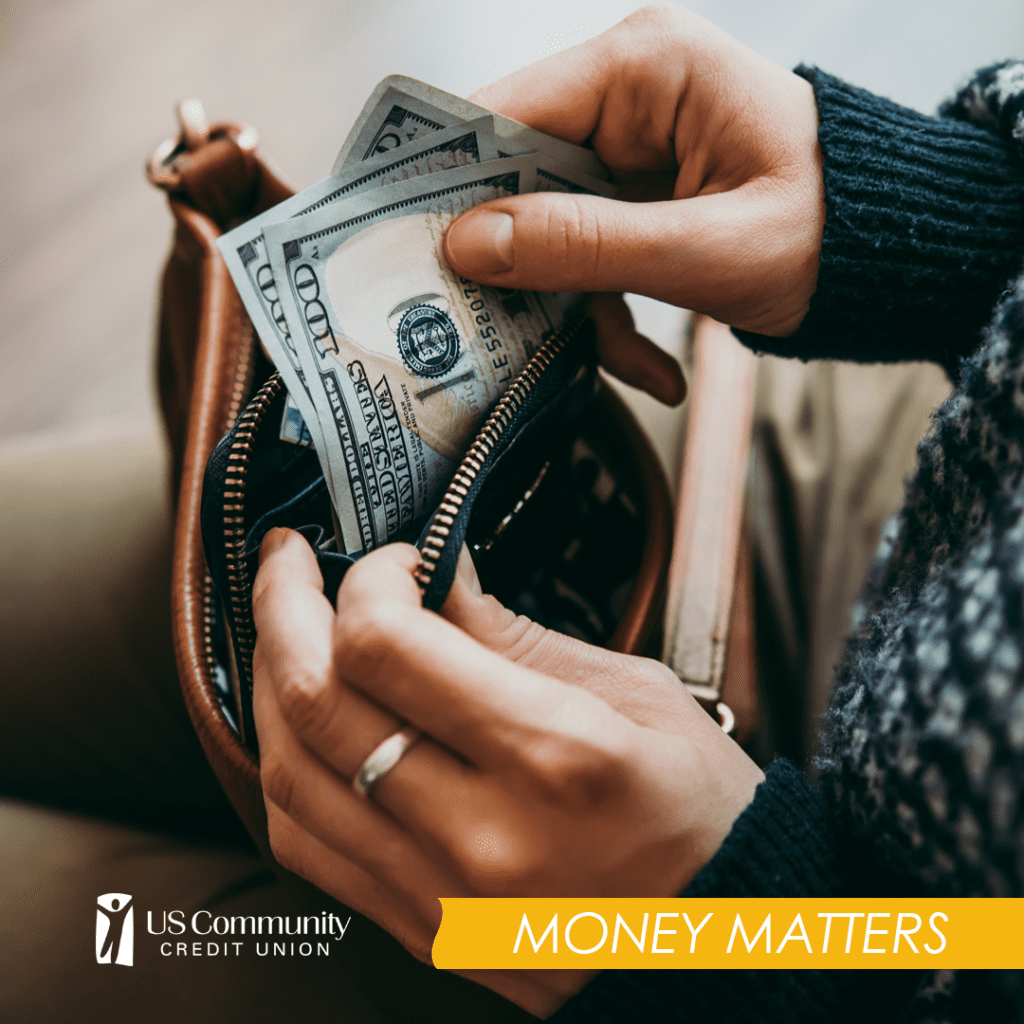
There’s lots of talk in the world of personal finance about how to best manage a savings account. You might read up on financial experts who recommend keeping three to six months’ worth of living expenses in your savings account, or maybe you’ve seen a tip about socking away enough money to cover larger expenses. Either way, there’s lots of discussion about the ideal amount of money to keep in a savings account.
But what about our checking accounts?
Most of us use our US Community Credit Union Checking Account on a daily basis. Every swipe of a debit card, every bill we pay or even every personal check we write takes money out of our checking account.
So, how much money should we be keeping here?
What’s your magic number?
According to a 2019 NerdWallet survey, the average American checking account balance is approximately $2,900 but this number may not be right for you.
Everyone’s financial realities are different, and because of that, we have different answers to the question of how much money we should be keeping in our checking accounts. The general rule of thumb is always to try to have one or two months of living expenses in it at all times. Some experts recommend adding 30 percent to this number as an extra cushion.
We recommend tracking your spending over several months, including all bills and discretionary spending. Don’t forget to include seasonal and occasional expenses as well. Once you have an idea of what your spending looks like over several months, you you’ll have a better understanding of how much money you should have in your account to cover all necessary and discretionary expenses. And always leave a little room for an unexpected transaction here and there.
Why keep that much money in your checking account?
Your checking account is your transactional account. This is where you’ll draw the money for the majority of your spending throughout the month. Because of that, you will want to be sure you have enough funds to cover expenses. But it goes deeper than that. Here are three reasons you want to keep your checking account well-padded at all times:
- Avoiding overdrafts. We will all make a mistake at some point in time, miscalculating our spending which can lead to an overdrawn account. Why risk being charged overdraft fees for every transaction when you can easily avoid this mistake? US Community Credit Union offers Courtesy Pay, an added member service that protects your checking account when an inadvertent overdraft occurs. It protects you from paying merchant returned check fees. But, making sure your checking account is adequately padded will also help.
- Providing a cushion for pre-authorization holds. Some merchants, including those that operate gas stations, hotels, and car rentals, will place a pre-authorization hold on your debit card until you complete a transaction. Pre-authorizations can reduce your available checking account balance by up to $100 per hold. Once your transaction clears, the hold is released, and the funds are available to you again. However, until then, the money is tied up. Keeping your checking account well-funded allows you to comfortably agree to pre-authorization holds without fearing an empty or overdrawn account.
- Keeping liquid funds available. A robust checking account means access to cash is just an ATM transaction away. While most vendors accept various forms of payment, it’s helpful to know you have cash available if and when you need it.
Can I be keeping too much money in my checking account?
While it’s great to keep your checking account well-padded, taking it to the extreme is not recommended. Having an overstuffed checking account means you’re possibly missing out on the higher returns you can earn if you were to keep those same funds in a US Community Credit Union Money Market Account, High Yield Savings Account or a Certificate.
Once you’ve determined exactly how much money you should be keeping in your checking account, look into other options for the rest of your funds. You can visit us online at www.usccu.org or call our Member Service Line and 615-256-8712 to speak to a financial service representative to learn about our available checking account and high-yield options to find the one that’s right for you.